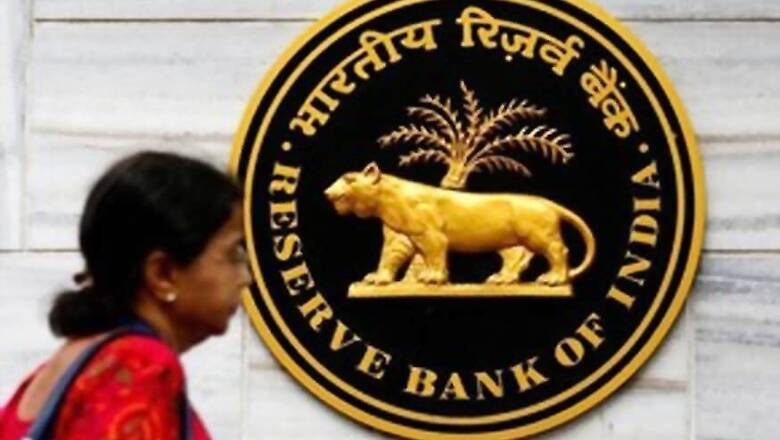
views
Mumbai: While a debate is going on whether the RBI should do more to ease credit to MSMEs, banking officials said the central bank has provided special training to nearly 11,000 officers at various commercial banks on lending to micro, small and medium enterprises.
This training has been provided to officers working at nearly 3,000 bank branches covering all districts in India through more than 2,000 special workshops in the last three years, the officials said.
These are mostly specialised bank branches catering to the MSME sector where this multi-level training has been provided, covering branch managers, senior officers and even faculty members of staff colleges who can further pass on the training to the bank employees.
Most importantly, the training exercise was executed in consultation with the government, including with the active involvement of the MSME ministry and the RBI's objective has been to create a conducive environment to help these small entrepreneurs and companies avail easy and faster credit, officials said.
The officers have also been provided special kits to help their banks extend more credit to MSMEs, while they have also been trained on behaviourial issues to deal with such borrowers with utmost care, they added.
The RBI's central board will meet on Monday where the government nominees and some independent members are expected to take on Governor Urjit Patel and his team on various issues including norms for the MSME credit.
The RBI is, however, of the view that its policies are very much in favour of easier credit to MSMEs and it has always been making efforts to make further relaxations for such borrowers, sources said.
The main concern of the central bank is about some big corporates misusing the NPA relaxations for 'ever-greening' of their loans, they said.
The RBI team, comprising of the governor and his four deputies, on its central board is banking on support from a few independent directors, who are of the view that a large majority of banks, including those facing 'prompt corrective actions', have achieved the mandatory priority sector lending targets for micro enterprises.
Also, the Micro, Small and Medium Enterprises (MSME) lending has been exempted from most of the restrictions, including those relating to the stressed assets, and several steps have been taken by the RBI to ease credit flow to this sector and to ensure their faster 'formalisation' to bring them on board the new GST regime that will help them further in availing the loans, they said.
While much has been written about differences between the RBI and the government, sources said the facts and the data show there are hardly any significant issues that are being faced by MSMEs due to policy or regulatory matters.
They cited several steps taken in the recent past by the RBI, in consultation with the government, for facilitating easier access and availability of credit to the MSME sector, including the 'Resolution of Stressed Assets-Revised Framework (RSA-RF)' of February 12, 2018.
This framework has been carefully calibrated to exclude loans availed by MSME units up to Rs 25 crore from its purview, which nearly covers the entire spectrum of the MSME borrowers. Besides, this remains in line with the earlier government policy for the benefit of MSMEs.
The average outstanding loan size of the MSMEs being 2.7 lakh, 26 lakh and 92 lakhs respectively, almost all the MSME loans are out of the purview of the February 12 circular, while the earlier 'specially carved out' rectification process for the MSMS sector remains in force that remains borrower-driven.
The officials also pointed at inclusion of a separate sub-target of 7.5 per cent under Priority Sector Lending for the micro sector and said the target has been achieved by most banks, including those facing 'prompt corrective action'.
Now, this target has also been made mandatory for foreign banks with 20 or more branches in India.
Besides, caps have been removed on loans to MSMEs to encourage banks to go beyond the earlier limits in such lending.
To ensure timely availability of funds to the MSME sector, the RBI has also facilitated the setting up of Electronic Bill Factoring Exchanges in the country. These exchanges provide for swift discounting of MSME bills and help MSMEs raise funds without delay.
The Non-Performing Assets norms have also been relaxed for the MSME sector to help them cope up with challenges following implementation of new reforms, officials said.
To ensure formalisation of MSMEs, exposure of banks and NBFCs to the GST



















Comments
0 comment